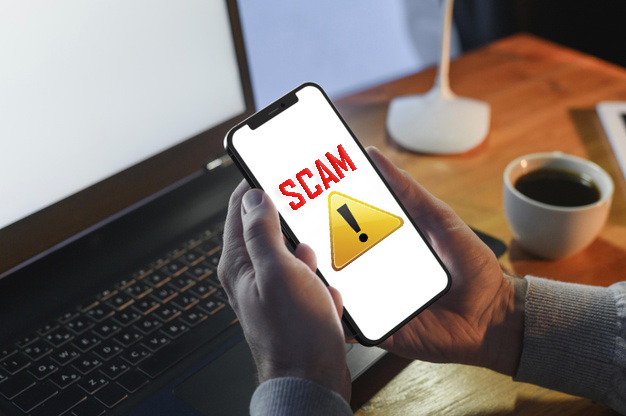
Attorney General Chris Carr is warning Georgians about increased reports of imposter scams in which con artists pose as law enforcement officials in an attempt to steal money from unsuspecting consumers.
“Fraudsters like to play on people’s emotions and use scare tactics, such as threats of arrest, to convince consumers to turn over their money before they have a chance to think things through,” said Carr. “It’s important that Georgians stay informed of the latest scams and proceed with caution when receiving calls or messages requesting payment or sensitive information.”
The Attorney General’s Consumer Protection Division has put together the following descriptions to help consumers better identify some common law enforcement imposter scams.
Jury Duty Scam
Fraudsters, posing as someone from the local police or sheriff’s office, tell consumers that they owe a fine for missing jury duty and must submit payment immediately – typically via gift cards, mobile payment apps or Green Dot MoneyPaks. In another twist, scammers claim there is a warrant out for the consumer’s arrest due to failure to respond to a jury duty summons or federal subpoena. The scammers then inform the victims that they can avoid arrest by submitting payment through one of the methods listed previously. To lend credibility to their schemes, scammers may even use the actual name of a law enforcement officer, direct a consumer to the actual website of the law enforcement office, or use spoofing technology to show the legitimate phone number of the law enforcement agency in the caller ID display.
Parole/Probation Program Scam
Con artists send letters to inmates’ families that purport to come from the Georgia State Board of Pardons and Paroles. The letters describe a fictional 90-day parole/probation program for early release called “Intent Supervised Parole Reinstatement Program,” which costs $970. The inmate’s family member receives a follow-up phone call providing additional details about the program and asking for an up-front deposit for an ankle monitor via a mobile payment app, money order or GreenDot MoneyPak. The scammers claim they will refund 60 percent of the money paid if there is no damage to the ankle monitor during the course of the program and promise to visit the inmate to explain the terms of his or her release as soon as the deposit is received.
U.S. Customs and Border Protection Seized Package Scam
Scammers posing as U.S. Border Patrol agents and U.S. Customs and Border Protection officers call consumers or leave automated messages claiming that a package addressed to them containing drugs or other illicit materials has been seized at the border. Consumers are instructed to press “1” to speak with an agent or to call a number, which connects consumers with a scammer who tells them they can avoid arrest or legal trouble by providing payment or bank account information over the phone.
Tips to Avoid Law Enforcement Imposter Scams
- Law enforcement agencies do not solicit payment over the phone, allow for arrangements to be made over the phone to clear a warrant, and will never ask for payment for clemency considerations.
- No government agency or law enforcement office will ever ask you to make payments with gift cards, Green Dot MoneyPaks or mobile payment apps.
- In most cases, law enforcement will not call you if a warrant has been issued for your arrest. They usually come to your home to serve the warrant in person.
- Spelling, grammatical or other errors in a letter that purports to come from a government or law enforcement agency are red flags of a scam.
- Before you respond to any contact from a law enforcement office in which you are threatened or asked to pay money, hang up and then call the verified phone number for the law enforcement entity to find out whether the call you received was legitimate.
What to Do if You’ve Lost Money in a Scam
- Immediately Report the Fraud: As soon as you become aware of the fraud, immediately contact the appropriate financial provider, money transfer company or gift card provider so you have the best chance of recovering your money and minimizing any damage done to your finances or credit record.
- Report the Fraud to Law Enforcement: Report impersonation scams to the appropriate law enforcement agency, to the Georgia Attorney General’s Consumer Protection Division at (404) 651-8600 or consumer.ga.gov, and to the Federal Trade Commission at reportfraud.ftc.gov.
- If Scam Transactions are Hurting your Credit: Visit AnnualCreditReport.com to request your free credit reports from the three major credit reporting agencies – Experian, Equifax, and TransUnion. If you notice any unauthorized collection items, loans or credit cards, contact the three major credit reporting agencies – Experian, Equifax, and TransUnion – to dispute them. Freezing your credit is also a great way to stop unauthorized accounts from being opened. To learn more about how this process works, visit https://consumer.georgia.gov/consumer-topics/credit-freeze.
For more information about imposter scams, visit the Attorney General’s Consumer Protection Division website.


Chattooga Local News
Georgia Power Files Plan for Customer Rate Decrease with Public Service Commission

Chattooga Local Government
Carr Pushes for Permanent Halt of Medicare and Medicaid Funding for Child Sex-Change Procedures

Bulloch Public Safety
02/20/2026 Booking Report for Bulloch County

Chattooga Local News
AllOnGeorgia Launches Reader Poll for March 10 Special Election

Bulloch Public Safety
01/26/2026 Booking Report for Bulloch County

Bulloch Public Safety
02/09/2026 Booking Report for Bulloch County

Bulloch Public Safety
01/22/2026 Booking Report for Bulloch County

Bulloch Public Safety
02/16/2026 Booking Report for Bulloch County

Bulloch Public Safety
02/02/2026 Booking Report for Bulloch County





